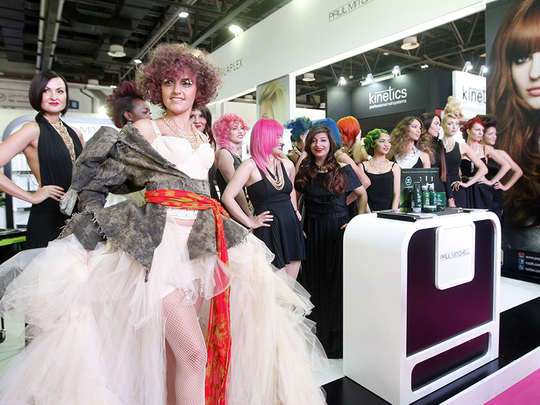
Dubai: A weaker euro is helping increase international business of European cosmetics and personal care companies. Many look to expand into the Middle East, which offers more growth opportunities than back home.
The depreciation of the currency means that goods produced in the Eurozone are cheaper, which has helped boost exports from the region to the rest of the world this year.
The euro has been slipping against the US dollar and other currencies over the last year. It continued to slide in the first quarter of this year as the European Central Bank launched its bond buying programme, known as quantitative easing.
David Elizalde, international director at Spain-based Quimi Romar, which exports personal care and household products to more than 70 countries worldwide, expects international sales to grow by 40 per cent in the current year compared with 2014.
“We will be expanding our distribution in the markets where we are in and enter new markets. In Africa this year, we will go deeper in Algeria,” Elizalde said at Beautyworld Middle East, a three-day trade fair for the cosmetics, personal care and well-being industries that kicked off in Dubai on Tuesday.
While demand is stable in Europe, it is strong in markets like the Middle East, Africa and Asia, he said. The lower cost of European goods has helped attract customers from international markets, he added.
Echoing his views, Silvia Cabula, export specialist at Italy-based Quilibra, which sells natural cosmetics and dietary supplements, said: “We are more interesting for other countries because the euro is weaker.”
Quilibra looks to expand and boost marketing activities in the Middle East, where demand is good, according to Cabula. It currently operates in the United Arab Emirates, Qatar, Saudi Arabia and Kuwait.
The company is interested in entering Iran should economic sanctions against the country be lifted.
“Iran is a big market. It has a big population. People are well educated and are interested in cosmetic products,” Cabula said.
International sales of Quilibra, which also exports to China along with the Middle East, is expected to grow by at least 20 per cent in 2015 compared with the previous year, she said.
Meanwhile, Xavier Torre, artisan parfumeur at Testa Maura, a niche perfume brand in France, said that the company aims to expand into the Middle East after entering the US. It is participating in Beautyworld Middle East to look for a distributor for its regional operations.
“The niche brands are well represented in the Middle East, in places like Bloomingdale’s and Paris Gallery. It is one of the best markets for niche brands,” Torre said.
Some companies said that a weaker euro has helped increase first-quarter costs.
Paris Elysees, a French perfume maker, saw 10 per cent rise in costs in the first three months of this year compared with the same period in 2014, said Laurent Morcrette, the company’s export manager. The company pays for its raw materials in euros and US dollars, he said.
Other companies, however, said costs were stable in the first quarter. “Costs are always the same because our raw materials come from Italy,” said Quilibra’s Cabula.












